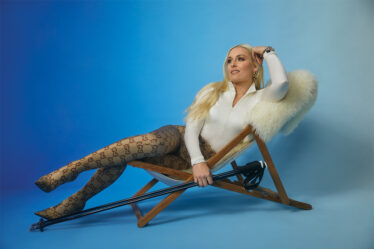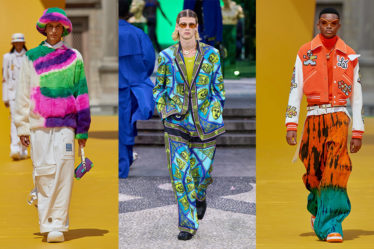
Puma said on Wednesday a return to growth in the Americas helped it meet first-quarter sales forecasts, sending the German sportswear group’s shares 4 percent higher as it predicted growing demand for its retro Palermo shoes.
Revamped and newly trendy shoes from the 1970s and 80s like Puma’s Palermo and Adidas’ Samba have helped boost sales for the sportswear brands at a time when consumers have cut back on spending and retailers are struggling with excess stocks.
“We are only six months now in the market with the Palermo, and we see how the franchises are continuing to grow in strength month over month,” Puma chief executive Arne Freundt told a news conference.
Shares in Puma were up 4.2 percent to €47.14 by 10.00am GMT.
Puma is increasing production of the Palermo shoes while being careful to avoid oversupply, Freundt said, echoing comments by Adidas’ CEO last week about managing the trend.
“The terrace trend is very real and is something that provides material contribution to sales,” said Felix Jonathan Dennl, analyst at Metzler Capital Markets in Frankfurt. “Puma was, I would say, late and jumped on that trend later than Adidas did.”
Retailers, where Puma makes most of its sales, are still working through excess inventories, but the company sees further improvement in the second quarter after Puma’s inventories fell by 16.8 percent compared with March 31 last year.
Currency-adjusted sales rose 0.5 percent to €2.1 billion ($2.26 billion), in line with analysts’ forecasts, as sales in the Americas grew for the first time in four quarters to €790 million, partly due to improvement in the key U.S. market.
While Puma’s wholesale business fell by 2.9 percent, its direct to consumer sales – through its website and own stores – grew by 13.5 percent, helping its gross profit margin improve to 47.5 percent.
Puma is investing in advertising to boost its brand, and is on a drive to improve its credentials as a performance sportswear maker, particularly in running where it has worked on its shoe technology.
At last month’s Boston Marathon, Puma-sponsored athlete Edna Kiplagat came third, marking the brand’s first podium spot at a World Marathon Major in decades.
Competition is fierce in running, however, with newer brands like On Running and Hoka taking market share from the likes of Nike and Adidas.
“The running category is as crowded as ever,” Morningstar analyst David Swartz said, adding that Puma has a lot of work to do as it has a small market share.
By Linda Pasquini and Isabel Demetz.
Learn more:
HED of article goes here (in bold and linked)
DEK of article you are adding as Further Reading



